I recall the good old days of Academicals football in Nigeria. The secondary schools used to produce football players of quality in an endless stream. No one asked about their ages. Studentship determined and separated the boys from the men. You had to be in secondary school to qualify to play in the regional or national academicals team of those days. Football encouraged enrollment of youths into school, and scholarships for the best players were a great incentive to play and excel.
Many of the national team players came through the academicals from all parts of the country. The transition from Academicals to the Green Eagles was smooth, based purely on the merit of the performance. The public was as much a selector as the national coach in charge of the team.
I also remember the birth of the Flying Eagles with great nostalgia. They metamorphosed from the Nigeria Academicals. Both were feeder teams for the Green Eagles. That’s how some of the greatest players in Nigeria’s football history rose to the top. Their list is very long. Meanwhile, the strength of Nigerian football was in the individual skills of players honed on the rough, hard playing grounds around the country. As a result of very bad pitches, there wasn’t much emphasis on tactics. The limited knowledge and experiences of the country’s dedicated first and second generation coaches could also only produce players that could express themselves freely on the ball through dribbling, running at great speed, shooting powerfully, or making great crosses. The bottom line is that there must be something exceptional in a player for him to qualify for a place in Nigeria’s national team, beyond the common ability to kick and follow the ball.
I recall that Sam Garba, Peter Anieke, Ismaila Mabo, Babatande Nakande, Tony Igwe, all had to register as students in a secondary school in Jos, Academy Institute of Commerce, for them to be able to play their football at Academicals level from where they moved up to the senior national team. So, being in secondary school was a requirement to play in the Academicals. You could not play from outside it, and academicals football was big, very big. It was a subtle enforcer of enrollment into secondary school for those who did not ordinarily want western education. It also promoted College football as a football development module. And it worked magic in the country.
Student players and teams packed stadia. Haruna Ilerika, alone in Zumratul College Agege, Lagos, could fill the Onikan Stadium with spectators. Stephen Keshi, the Olukani brothers, Tarila Okoronwanta, and Henry Nwosu, all in both St. Gregory’s College and St. Finbarr’s College, packed stadia with fans. It was a similar story in different parts of the country.
The attraction was the artistry of the players. They could do extraordinary things with the ball at their feet. Those were the same attributes that Etim Esin, Jay Jay Okocha, Kanu Nwankwo, Victor Ikpeba, and co, inherited that separated them from the chaff, and turned them into superstars, well above their peers, and good enough to grace the football theatres of Europe.
The football field was a theatre.
On it, the players could ‘dance’ and dribble as if to the beat of some ‘invisible’ music. Every time, they put up a show, shielding and passing, sprinting down the flanks and making precision crosses, hauling long throws, driving cannon shots, and heading crosses with power and precision. That’s how the nicknames came about: headmaster, blockbuster, slow poison, switching, caterpillar, tailor, mathematical. In short, the players were technically sound and could do a whole lot of things with the ball, but often deficient in advanced understanding of tactics, discipline, systems and organized team tactics. These they needed to add to their arsenal of natural skills on the sophisticated fields of Europe in order to become the complete article.
Such breed of players was special but is now fast disappearing from the local scene. Coaches, also, of the blessed ‘old school’, unadulterated by imported foreign technicalities, are also becoming a very scarce commodity. As a deliberate strategy to improve the standards of football, and to reduce the gap between First and Third World football countries, age–group competitions were introduced by FIFA. That’s when the Nigerian Academicals became the Flying Eagles and, now, the Nigerian National Under-20 team.
The difference between the then National Academicals and the present Under-20s is the stringency in legibility. The academicals were exclusively drawn from schools (irrespective of their age), whereas the Under-20s are mostly drawn from major clubs and have to produce documents to show that they are under the age of 20. That’s the problem here – documents. In Nigeria, documentation and integrity do not go together. FIFA’s good intentions have become Nigeria’s greatest set back in football development!
The on-going FIFA Under-20 World Cup in Poland clearly shows the unintended and unwanted consequences of FIFA’s development agenda in a Third World country like Nigeria. Nigeria was ousted in the first round of the championship following one of the worst series of performances I have ever seen a Nigerian team put up. That speaks volumes.
For a country that has won the Under-17 championship three times in its history, but finds putting up a similar spirit and performance at a higher level impossible, something is definitely wrong. That wrong component is why the country has never won the Under-20 Championship as would be expected in accordance with FIFA’s good intentions, or the World Cup proper as predicted by Pele in 1989.
Pele and a few others watched Nigeria’s Under-17s in Scotland in 1989 and predicted that by the turn of the last Century, Nigeria would win the senior World Cup following what he saw of the team. It is almost 30 years since then, 19 years into a new Century. Pele has been made to eat his predictions.
This week, Nigeria’s Under-20s put up a performance that made Nigerians shut their eyes in shame and wonder what had gone wrong with the FIFA development module. The performance had nothing to show: no exceptional players; no organized play; no clear tactics; no discipline; no creativity; no artistry; no class; no style; no colour; nothing! Just a bunch of very physical, ordinary players running without a strategy whilst their hapless coach watches in total stupefaction, wondering what to do, and doing nothing.
The greatest surprise is that Nigerians are showing surprise at the turn of events. The country’s football is, of course, a reflection of the state of the country. How can a system where corruption thrives, fueled by bribery, brazen lies, cheating and falsification of documents be expected to produce a football environment that is productive? Deny it as much as Nigerians like for so-called ‘patriotic’ reasons, the truth is that at age-group competitions (every single one of them) the country cheats. We all shut our eyes to the truth and use much older players. Everyone knows it. Even the international organisers know it too in their hearts but can do nothing. I have heard as much in conversations at some high levels.
They do not punish us because there is no evidence of our actions. So, they let us burn up in our self-deceit, certain of the consequences of our short-sighted folly – heading nowhere. The lame excuse we give is that some other countries do it as well. So, it is alright to embrace corruption because others are corrupt?
So, FIFA lets us wallow in our cheating and celebration of pyrrhic and shallow ‘victories’ that are of little value, at the cost of the more lucrative, more prestigious and more glamourous championships. Nigeria also hires a coach with paper qualifications, but without the experience and pedigree to handle a national team with a goal to win the World Cup at a level, the country has never won before, and expect a miracle.
Poland 2019 has been a sad reminder of the direction Nigeria should not head. The country must go back to the era of exalted values and high morals, of good conduct and character, and perch on to a new ground where to win is not by all means, but to compete with dignity, fairness and integrity.
We were there only a few decades ago.
That’s where we must return to.
Enough of the shenanigans.
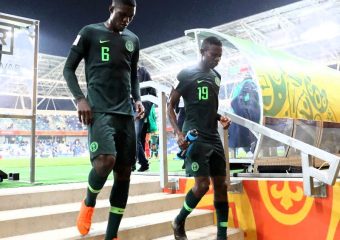
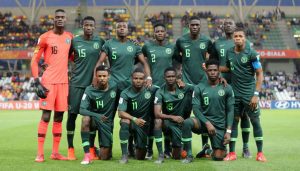
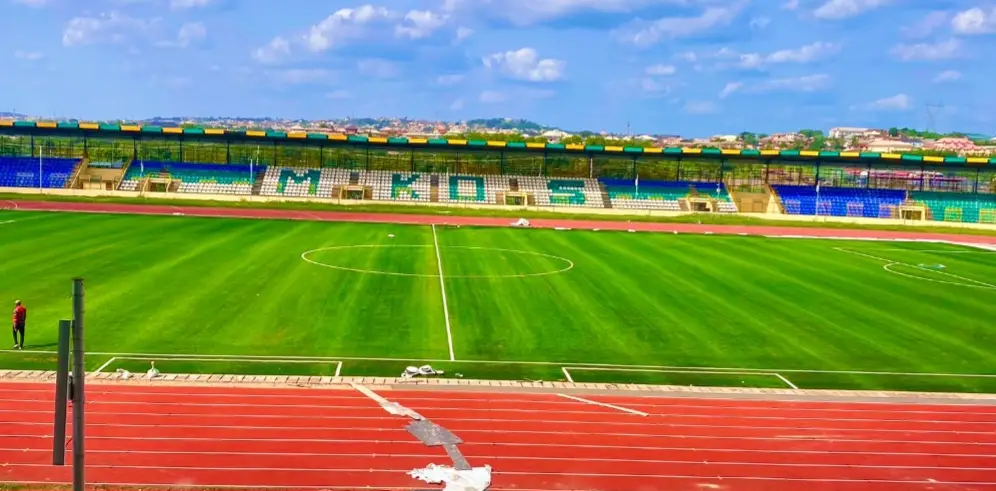
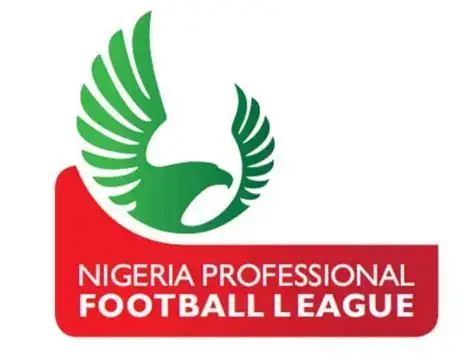
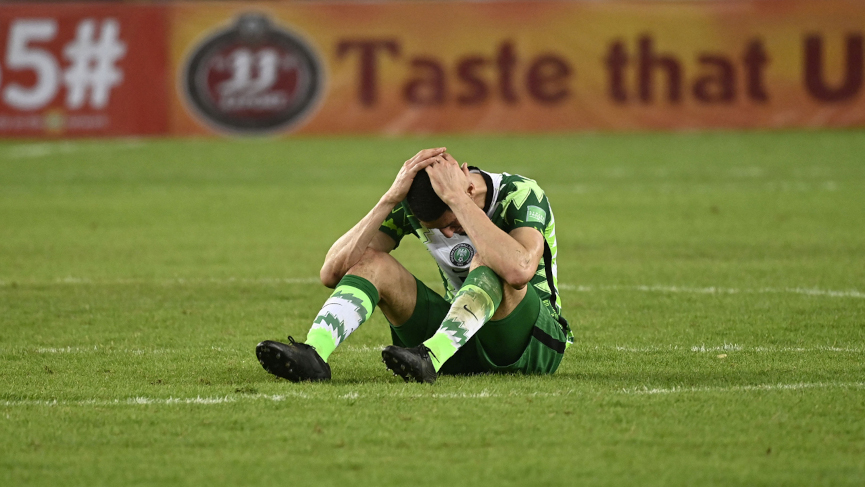
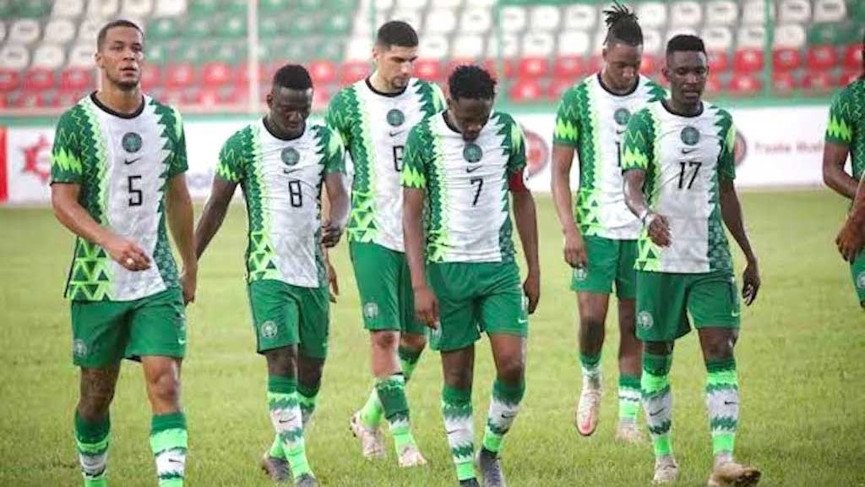




Well said sir and laid out. It is really unfortunate that our great nation Nigeria has degenerate to such level. I was ashamed watching the last Under 20 World cup. Old men claiming to be under 20s. So sad for the development of football in our country. There is not joy again watching any of our National team play.
Mentor,
Nothing will top this and I will state clearly nothing better can be said about our game than you have succinctly put it sire. Many blessings
Mathematical,
How can what you’ve written be topped?
How is it possible for skilful football to be displayed in Nigeria these days with the level of corruption that has permeated the country’s fabric. Our senior football administrators are corrupt so it’s no surprise the industry and majority of those involved in it are so inclined. Before we see the likes of the ‘stars’ you already highlighted again would be in generations far away. However, I consider myself fortunate to have witnessed many gifted footballers display their skills when mediocrity had not set in and destroyed a past time close to the hearts of millions of Nigerians.
My dear Mathimatical Emeritus Segun. Good morning and thank you once again for recreating soccer memories of old that makes sense out of the ordinary. Oh, Pele saw only the BALL – the positive good thing in football Nigeria, but was unschooled in the irredimable ethical blindness to Logic-of-Things (Lot) embedded in the Nigerian character of development? Indeed, how can a nation openly demarket herself by naming herself ‘Flying Eagles and Elephant’ instead of “NIGERIA”? What a brand value lost! Football is the hidden secret and ultimate tool for discovering the music for Nigeria’s nay, Africa’s greatness.
Thank you my brother. May God grant you more longer memory and invaluable life. O se pupo.
You said it all Sir,how do we get out of this wood?
Once corruption still strive we are heading no where.